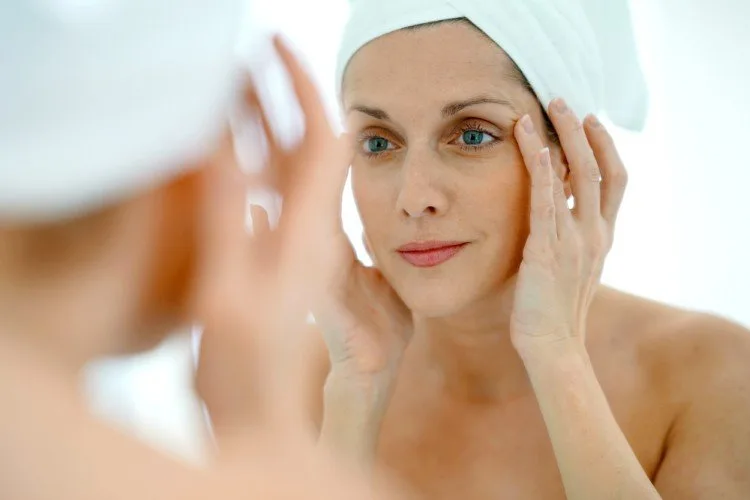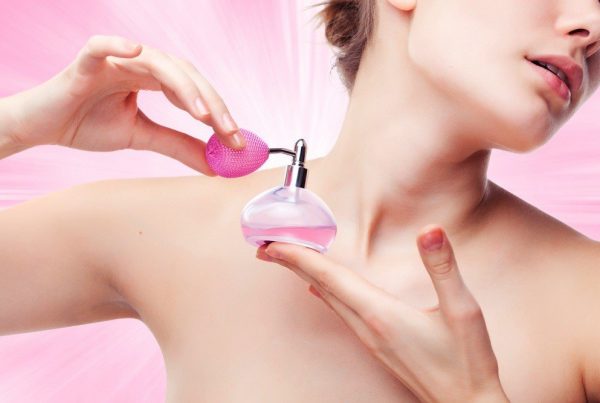Our brain and skin both originate from the ectoblast, which forms the nervous system and epidermis. Neuroscientists and dermatologists are discovering the inextricable link between the two. This is why the buzz word “Neuroglow” is gathering momentum amongst industry experts.
What Is Neuroglow?
Neuroglow is a term pointing to the relationship between mental well-being and healthy, glowing skin. Gone is the era of skin-deep beauty, we’ve entered the chapter of mind, body, and beauty that connect.
Basically, Neuroglow is the philosophy of the symbiotic relationship between our emotional landscape and the health of our skin. This relatively new ideology has confirmed the link between psychological stress and the aggravation of acne, psoriasis, rosacea, eczema, with chronically elevated stress levels seeing a decrease in collagen production.
“The connection between the brain and the skin is profound, with the skin both a target and a source of stress hormones. Understanding and addressing this link is crucial for the effective treatment and management of various skin conditions.” Dr. Thuraya Isaacs, consultant dermatologist and senior lecturer, Groote Schuur Hospital and University of Cape Town.
How we manage our emotional well-being can determine the outward appearance of our skin, with growing bodies of research confirming the confluence of the two.
A Spotlight For Neurocosmetics
Also known as psychodermatology, the skin-mind dialogue is narrowing the gap between mental health and beauty. Brands are responding to the seismic consumer shift towards a preferred holistic approach to both. This has now prompted a paired back approach to topical beauty.
Enter the rise of neurocosmetics, a category of skincare products that uses ingredients to regulate emotions by triggering a positive neurotransmitter release – a happy mind means happy skin.
Typically, natural mood-boosting ingredients make up these products. They include botanicals and essential oils that induce a sense of calm. They also focus on the connection between the skin microbiome and microorganisms on your skin. In a nutshell, science backs neurocosmetic products as a multisensory experience.
Neuroglow Lifestyle Adjustments
Neuroglow goes beyond scientifically formulated, emotionally uplifting skincare, which is a multidisciplinary approach to managing stress, anxiety and depression, all of which are known to be key drivers of skin inflammation. The Neuroglow ethos looks to holistic solutions to help people self-regulate and manage stress levels. Integrating a neuroglow approach to self-care doesn’t mean an all-at-one lifestyle overhaul, but rather achievable, and incremental daily changes.
Exercise
That post-exercise glow is a real thing. According to the American Association of Dermatology, post-workout skin radiance boils down to an increase of blood flow to the skin, feeding it with oxygen and nutrients that in turn clears impurities. In equally good news, exercise has been shown to increase collagen production.
Exercise also reduces levels of stress hormones (adrenaline and cortisol), and stimulates the production of endorphins, our body’s happy hormone.
In terms of recommended daily activity, adults need at least 150 minutes of moderate-intensity physical activity a week. If you break it down, that’s roughly 20 minutes a day, which sounds less overwhelming.
Diet
What you put on your plate is more important than what you put on your skin. The best skin-nourishing foods contain omega 3 and 6 fatty acids, vitamin E, and beta-carotene.
- Omega fatty acids: Cold-water fatty fish, including herring, sardines, and salmon are abundant sources of omega-3 fatty acids, which play a vital role in reducing the effects of skin inflammation. Plant-based fats like healthy nuts, oils, and seeds have also been shown to be effective in lowering inflammation markers.
- Vitamin E: Vitamin E is a fat soluble vitamin, in its nutritional form, it’s ubiquitous in fats and oils from animal products (meat, poultry, fish, and dairy foods), as well as vegetables, seeds, and cereals. Spinach, pumpkin, butternut, and red capsicum are also great sources of plant-based vitamin E.
- Beta Carotene: Eating a diet high in carotenoids, such as beta-carotene, can help prevent cell damage, skin aging, and skin diseases. Carotenoids can also help protect your skin from environmental factors like pollution and UV radiation. You’ll find that carotenoid-rich foods are usually bright and include leafy green vegetables, carrots, butternut squash, tomatoes, red peppers, and citrus fruits.
Adaptogens For Stress
Growing numbers of people are looking to nature when it comes to managing stress, anxiety, and depression. This is why adaptogens are taking centre stage in health stores.
Adaptogens are herbs, roots, and other plant substances (like mushrooms) that help our bodies manage stress. They also restore balance after a stressful situation.
To consider a herb or plant substance as an adaptogen, it must;
- nontoxic at normal doses
- support the body’s ability to cope with stress
- help the body return to a stable state
The herbal action of adaptogens increases or decreases chemical reactions within your body.
If you’re stressed (elevated cortisol), an adaptogen will reduce it. If you experience chronic fatigue because of low cortisol levels, an adaptogen will increase the cortisol in your body.
Popular adaptogens for managing stress include Ashwagandha, shown to reduce anxiety and depression, Tulsi (“holy basil”), used to increase focus, decrease anxiety, and boost the immune system, and Rhodiola, to combat fatigue, depression, and pain.
Adaptogens may interact with chronic medication, pregnancy, and existing health conditions, and always consult with your healthcare professional before taking any supplement.
Nature
Spending as little as 20 minutes immersed in nature has been scientifically proven to lower cortisol levels. It’s the simplest, fastest, and most affordable solution for a full body reset.
When you next feel overwhelmed or stressed, take your shoes off. Then, ground yourself in soft grass, or walk on the beach and feel the sand under your feet. The results may astound you.
Meditation
Meditation is considered a type of mind-body complementary medicine, with research revealing that people who practiced meditation had a smaller right amygdala (stress reduction has been associated with less amygdala volume).
Other emerging observations suggest that the practice of meditation can reduce inflammatory activity, which may reduce inflammatory responses in the skin, leading to a healthier complexion.
If practicing meditation is new to you, there are many apps offering meditations that are accessible for beginners.
Conclusion
The Neuroglow trend is the coming together of the mind, body, and skincare trifecta. It’s about a consistent beauty routine and a holistic approach to managing stress and emotions. Even the smallest lifestyle changes can benefit your skin. When you feel better, you look better, when you look better, you feel better. As such, the positive effects of the Neuroglow cycle continues.
REFERENCES
- Exploring the Skin Brain Link: Biomarkers in the Skin with Implications for Aging Research and Alzheimer’s Disease Diagnostics https://www.mdpi.com/1422-0067/24/17/13309#:~:text=The%20brain%20and%20human%20skin,layer%20during%20early%20embryonic%20development
- Brain-Skin Connection: Stress, Inflammation and Skin Aging https://www.ncbi.nlm.nih.gov/pmc/articles/PMC4082169/
- Probing the Skin–Brain Axis: New Vistas Using Mouse Models https://www.ncbi.nlm.nih.gov/pmc/articles/PMC9267936/#:~:text=The%20suggested%20routes%20of%20the%20skin%E2%80%93brain%20axis,mechanisms%20of%20neuropsychiatric%20comorbidities%20in%20AD%20and
- Inflammatory markers in depression: A meta-analysis of mean differences and variability in 5,166 patients and 5,083 controls https://www.ncbi.nlm.nih.gov/pmc/articles/PMC7327519/#:~:text=Direct%20evidence%20of%20inflammation%20in,(TNF%CE%B1)%2C%20and%20reductions%20in
- How your workout can affect your skin https://www.aad.org/public/everyday-care/skin-care-secrets/routine/workout-affect-skin#:~:text=Get%20that%20glow,workout%20glow%2C%22%20she%20says.
- Exercise-stimulated interleukin-15 is controlled by AMPK and regulates skin metabolism and aging https://onlinelibrary.wiley.com/doi/10.1111/acel.12341
- Regular exercise is associated with emotional resilience to acute stress in healthy adults https://www.ncbi.nlm.nih.gov/pmc/articles/PMC4013452/
- Physical Activity for Adults: An Overview https://www.cdc.gov/physical-activity-basics/guidelines/adults.html?CDC_AAref_Val=https://www.cdc.gov/physicalactivity/basics/adults/index.htm
- Omega 3 Fatty Acid and Skin Diseases https://www.ncbi.nlm.nih.gov/pmc/articles/PMC7892455/
- Nut and seed consumption and inflammatory markers in the multi-ethnic study of atherosclerosis https://pubmed.ncbi.nlm.nih.gov/16357111/
- Vitamin E https://ods.od.nih.gov/factsheets/VitaminE-HealthProfessional/
- Do We Utilize Our Knowledge of the Skin Protective Effects of Carotenoids Enough? https://www.ncbi.nlm.nih.gov/pmc/articles/PMC6719967/
- Adaptogens https://my.clevelandclinic.org/health/drugs/22361-adaptogens
- Stressed? Take a 20-minute ‘nature pill’ https://www.sciencedaily.com/releases/2019/04/190404074915.htm
- Meditation and yoga practice are associated with smaller right amygdala volume: the Rotterdam study https://www.ncbi.nlm.nih.gov/pmc/articles/PMC6302143/
- Deconstructing the effects of concentration meditation practice on interference control: The roles of controlled attention and inflammatory activity https://www.sciencedirect.com/science/article/abs/pii/S0889159120305870



![women [longevity live]](https://longevitylive.com/wp-content/uploads/2020/01/photo-of-women-walking-down-the-street-1116984-100x100.jpg)










